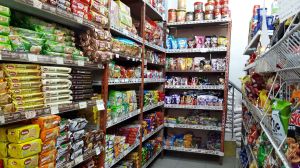We Asked Users
This survey was presented to a prequalified TCD audience in contextually relevant web articles and newsletters.
Survey participants self-selected two times, first when deciding to consume the host content and then again when deciding to participate in the survey.
Which factor would most effectively motivate you to recycle your old batteries?
Please select one.
Which factor would most effectively motivate you to recycle your old batteries?Survey Results
654 Progress Focus:
486 Policy Focus:
1,734 Waste Focus:
79
Aggregate Insights
The 66% combined response for — and relatively balanced split between — "Getting money back" and "Helping the planet" suggests that potential battery recyclers can most effectively be motivated with a combination of those two value props.
The response of "I don't recycle old batteries" from a fifth of the audience suggests a meaningful opportunity to educate mainstream consumers about the importance of — and opportunities for — battery recycling.
Further polling could add a second question about how often consumers actually recycle batteries to determine which form of motivation translates most effectively to real action.
Contextual splits are determined by the topical focus and interests of the audience members participating in the survey, as described in more detail in the Insights and Methodolgy sections below.
654 Progress Focus:
486 Policy Focus:
1,734 Waste Focus:
79
Split Insights
The overperformance of (a) "Getting money back" among the audience consuming content about financial savings and (b) "Helping the planet" among the audience consuming content about reducing waste underscores the importance of reaching potential recyclers with contextual messaging that speaks to their interests.
The overperformance of "I don't recycle batteries" among the audience focused on policy decisions suggests a potential appetite for more robust recycling regulations at the state and local level to make battery recycling opportunities more accessible.
Further polling could ask respondents across splits how often they actually recycle batteries to determine which forms of contextual targeting are most likely to be effective.
Methodology
This poll was conducted among a prequalified TCD audience of likely adopters via distribution in 12 syndicated web articles. It received a total of 3,083 responses and generated segmented data across 4 primary contextual splits.
TCD surveys are embedded inline in contextually relevant web articles and newsletters. Survey participants self-select two times, first when deciding to consume the host content and then again when deciding to participate in the survey.
Contextual splits are determined by the topical focus and interests of the audience members participating in the survey. Split analysis explores the degree to which different messages — and the self-selected participants who seek them out — can shape consumer sentiment.







